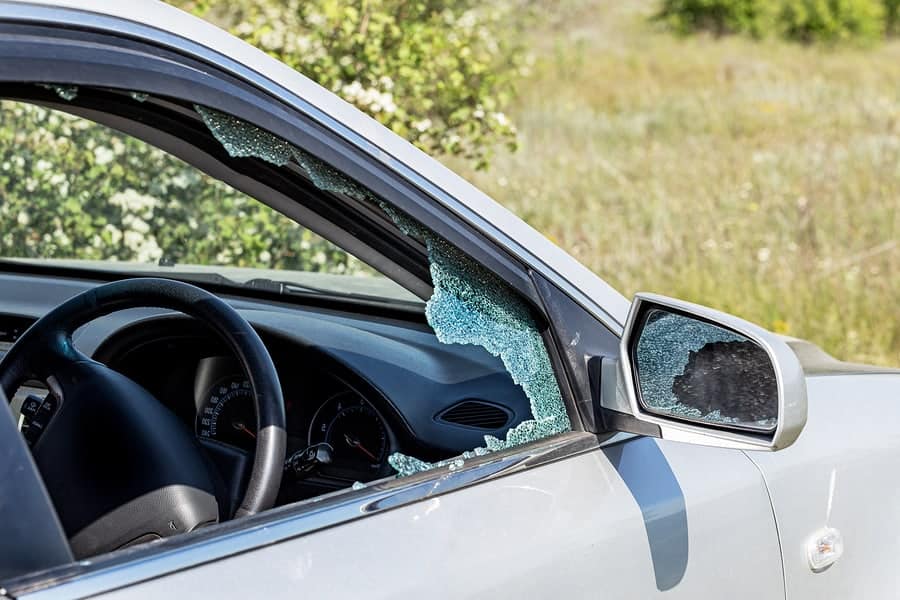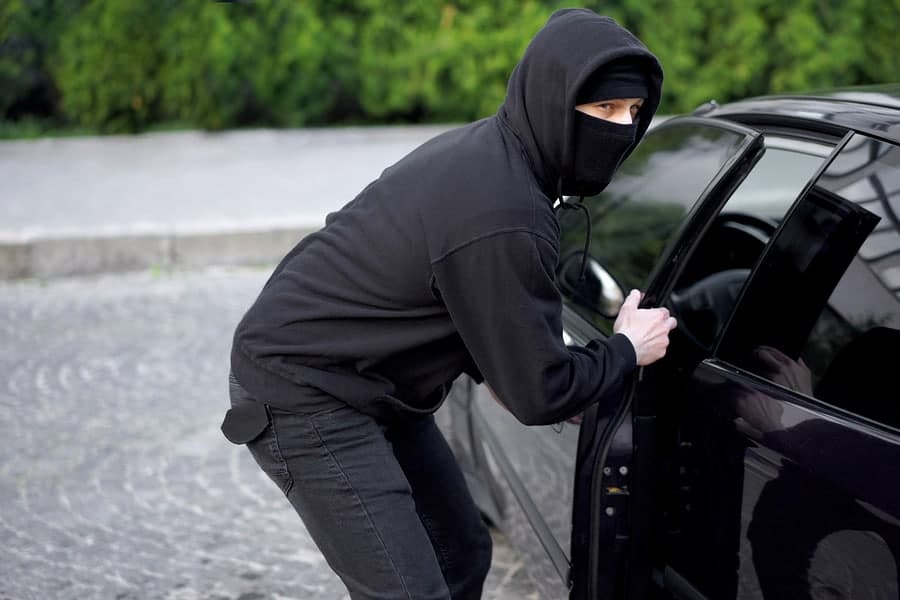
It’s a situation you don’t want to happen. Returning to your car – or waking up in the morning – to find your car’s been the victim of a break-in is no fun. Sadly, with the rise of urban crime, it’s becoming an increasingly common problem. 2018 saw a rise of over 9% in vehicle related thefts against the previous year.
The first priority is your safety. Do not approach a car, if you think the thief could be nearby, and make sure you’re not at risk. Once you’ve surveyed the scene, and you’re comfortable about returning to the car, follow these steps:
Table of contents:
- Document the Incident
- Report it to the Police
- ID Theft
- Making a Claim
- Stopping Car Break Ins
- And Finally
Document the Incident
Always take pictures, especially if you want to file an insurance claim, as you will probably have to speak to an assessor at some point. It may be worth writing down all the details too, because emotion can cloud your observational judgement when it comes to recalling details about the incident.
List everything, including all damage to the doors, windows, boot, tyres and anywhere that’s been knocked or scraped. Remember, that the vehicle has become a crime scene, so avoid rummaging around and tainting any evidence. One thing that can help the police, is the position of any security cameras, together with anything left at the scene of the crime by a potential perpetrator.
With insurance fraud increasing in recent years, many insurance companies are now very strict when it comes to issuing claims. For instance, you may be so concerned about the loss of valued goods, that you overlook the damage to the vehicle – which could cost quite a lot to fix. Make sure you go over every single detail, in case you require it later to support a claim.
Report it to the Police
If you want to make a claim on your insurance, then it is vital you contact the police, report the break in and get a crime incident number. The police may or may not visit you, depending on the severity of the issue and whether or not they believe the matter is connected with any on-going investigations. It’s possible they could ask you to attend the station to help with their enquiries.
You will need the following information when making a police report:
- Your driver’s license
- Vehicle registration
- Car insurance details
- Photos on your phone of the damage
- All details pertaining to the stolen items
This is where your notepad will also come in useful, as there are several standard pieces of information that the police will require. This includes details such as the location of the crime, the times when you left and returned to your vehicle, and information about suspicious activity in the area.
There is also the chance the police could recover your stolen items – putting them back in your hands, even if you’re not insured. Again, remember not to tamper with any evidence, until you have finished communicating with the officers assigned to the case.
ID Theft
One of the first actions you must take if you’ve lost any items that contain your details – including password protected mobile phones, laptops and any other IT devices, is place a fraud alert on your accounts. Contact the banks, let them know you’ve lost your cards, and if possible download software onto your mobiles, tablets and laptops that allows you to remotely self-destruct the data.
Additionally password vaults can help you keep track of all your passwords – allowing you to change the important ones if a theft occurs from your vehicle.
Making a Claim
You may not want to make a claim on your insurance, if it is under the excess charge. However, if the damage is severe and you’re missing valuable items – then this is exactly why you’ve insured your car – to protect you from having to fork out for the loss. However, be aware of the following facts when making a claim:
Household insurance – although valuables may have been stolen from your car, these could come under your household insurance, and may require you to make an altogether separate claim.
Check your car insurance policy – in order for the damage to be covered, you will need a comprehensive cover policy. It may also be worth getting a quote on the damage, to check that it’s worth claiming in respect of your excess and your no claims bonus.
Stopping Car Break Ins

What’s better than being able to quickly respond to a break in? Preventing one happening in the first place. Whilst there is nothing you can do to stop a super dedicated thief – most robbers are opportunists who will go for the lower hanging fruit. The more barriers you put in front of a criminal, the more likely they are to go elsewhere. Consider the following:
Cleaning out your garage – more than 50% of the UK’s garages are now used as household storage. Get rid of the clutter, and use the space to store your car for extra protection.
Lock the doors and shut all the windows – even in the summertime. The slightest gap in your window could be exploited by a thief. Don’t make their job easy and keep everything shut tight.
Don’t leave valuables in the car – as these will be a real magnet for potential thieves. Always empty your car of anything of value at night, and if you must leave items like laptops, phones or bags in your vehicle then lock them in the boot, away from sight.
Park in a safe, well-lit area – try to leave your car on a street where thieves might stand out. Dark, back roads give robbers extra cover and parking away from the main streets could make your car an easy target.
Activate anti-theft measures – from window alarms to car alarms – making sure that if someone is brave enough to break into your vehicle, they’ll have to withstand the social scrutiny of local people looking out of their windows to see the source of the racket.
Don’t leave the car unattended for too long – for instance if you’re staying in a hotel for a long weekend. Thieves may see this as an easy target. Get out there and move it – even if it’s only a couple of streets.
Report suspicious activity – in your local area. If you see someone standing around the cars and peering into your car windows then pick up the phone and call the police.
And Finally
With all break-ins the most important thing is to stay calm. Keeping a clear head and following through on a set course of action, will help you deal with the stress later. Be vigilant about documenting the incident, and act quickly for the best chance to get your goods back. Remaining cool will stop a whole lot of stress in the future.





.png)